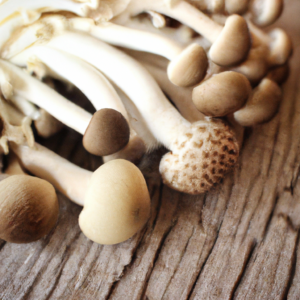Lion’s Mane Mushroom, scientifically known as Hericium erinaceus, is a remarkable fungi species that has been revered for centuries due to its various health benefits. With its unique appearance resembling a lion’s mane, this mushroom has captured the attention of researchers and enthusiasts alike. In this article, we will explore the incredible benefits, uses, and proper dosage of Lion’s Mane Mushroom, shedding light on this wonder of nature.

Introduction to Lion’s Mane Mushroom
Lion’s Mane Mushroom, also referred to as the Hedgehog Mushroom or Yamabushitake, is a medicinal mushroom native to Asia, particularly found in countries like China, Japan, and Korea. It has been an integral part of traditional Chinese and Japanese medicine for thousands of years, treasured for its potential health-enhancing properties.
History and Origins
The history of Lion Mane Mushroom can be traced back to ancient China, where it was highly regarded for its ability to support overall well-being. Traditional Chinese medicine practitioners recognized its potential benefits for the brain and nervous system, leading to its inclusion in numerous herbal remedies and tonics.
Nutritional Profile
Lion’s Mane Mushroom is not only revered for its medicinal properties but also for its impressive nutritional profile. It is a rich source of vitamins, minerals, and bioactive compounds. This mushroom contains essential amino acids, beta-glucan polysaccharides, antioxidants, and hericenones, contributing to its therapeutic potential.
Health Benefits of Lion’s Mane Mushroom
Cognitive Health
Lion’s Mane Mushroom has gained significant attention for its positive effects on cognitive health. Research suggests that it may help improve memory, focus, and overall brain function. The mushroom’s unique compounds promote the production of nerve growth factor (NGF), a protein that plays a vital role in brain cell regeneration and neural development.
Nervous System Support
The benefits of Lion’s Mane Mushroom extend beyond cognitive health. It is believed to support the nervous system by reducing inflammation, protecting nerve cells, and promoting myelin sheath regeneration. These effects may contribute to improved nerve function and enhanced overall well-being.
Digestive Health
Studies have indicated that Lion’s Mane Mushroom can have a positive impact on digestive health. It may help alleviate symptoms of gastrointestinal disorders, such as gastritis, ulcers, and irritable bowel syndrome (IBS). The mushroom’s anti-inflammatory and antioxidant properties contribute to a healthy digestive system.
Immune System Boost
Lion’s Mane Mushroom contains bioactive compounds that have been shown to enhance immune system function. It stimulates the production of immune cells and supports the body’s defense against infections and diseases. Regular consumption of Lion’s Mane Mushroom may help strengthen the immune system and promote overall wellness.
Anti-Inflammatory Properties
Chronic inflammation is associated with various health conditions. Lion’s Mane Mushroom possesses potent anti-inflammatory properties that can help reduce inflammation in the body. This natural remedy has the potential to alleviate symptoms of inflammatory disorders and promote a balanced immune response.
Potential Cancer-Fighting Properties
Emerging research suggests that Lion’s Mane Mushroom may have anticancer properties. Certain compounds found in this mushroom have shown promising results in inhibiting the growth of cancer cells and inducing apoptosis (programmed cell death) in cancerous tissues. However, further studies are needed to fully understand its potential in cancer treatment.
Dosage and Preparation
When it comes to consuming Lion’s Mane Mushroom, the dosage and preparation method are essential factors to consider. The appropriate dosage varies depending on the individual and the form of consumption, such as capsules, powders, or extracts. It is recommended to start with a low dose and gradually increase it while monitoring its effects on the body. Consulting a healthcare professional or a qualified herbalist can provide personalized guidance on dosage and preparation methods.
Side Effects and Precautions
Lion’s Mane Mushroom is generally considered safe for consumption, with minimal reported side effects. However, some individuals may experience mild digestive discomfort, such as an upset stomach or diarrhea, especially when taking higher doses. If any adverse effects occur, it is advisable to discontinue use and consult a healthcare professional.
Lion’s Mane Mushroom in Traditional Medicine
Lion’s Mane Mushroom has a long-standing history in traditional Chinese and Japanese medicine. It has been used to treat various ailments, including digestive disorders, mental fatigue, and nervous system imbalances. Traditional medicine practitioners often combine Lion’s Mane Mushroom with other herbs and natural remedies to create potent formulations.
Culinary Uses
In addition to its medicinal properties, Lion’s Mane Mushroom offers unique culinary opportunities. Its delicate flavor and meaty texture make it a popular ingredient in various dishes, including soups, stir-fries, and even vegetarian or vegan alternatives to meat-based dishes. Incorporating Lion’s Mane Mushroom into your culinary repertoire allows you to experience its taste while potentially reaping its health benefits.
Conclusion
Lion’s Mane Mushroom is a captivating fungi species that holds immense potential for enhancing human health and well-being. From its cognitive-boosting properties to its ability to support the nervous system, digestive health, and immune function, this mushroom truly deserves recognition. Whether consumed for its medicinal benefits or enjoyed as a culinary delight, Lion’s Mane Mushroom offers a fascinating journey into the wonders of nature.